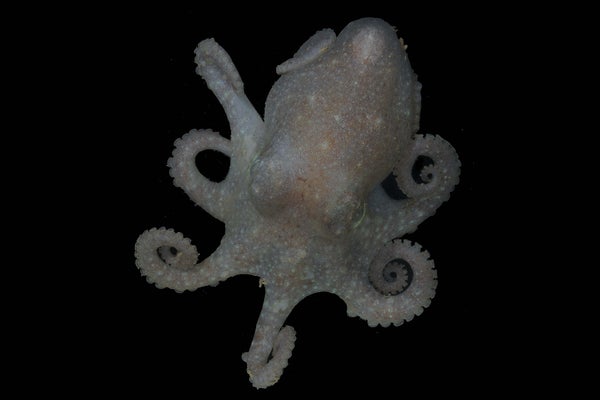December 21, 2023
4 min read
As the climate crisis continues, sooner or later the massive West Antarctic Ice Sheet will collapse. An unassuming octopus just gave scientists an important clue about how quickly that might happen
Turquet’s octopuses are found all around Antarctica crawling along the seafloor.
Scientists who are trying to understand Antarctica’s past face a daunting challenge. Ice doesn’t fossilize, so there’s no direct evidence showing how far the southernmost continent’s glaciers stretched in the distant past. That’s a problem because it makes predicting Antarctica’s future in an ever warming world more difficult.
Enter Turquet’s octopus (Pareledone turqueti). This little creature scuttles along the seafloor around Antarctica, and in new research, scientists use its genetics to argue that a major Antarctic ice sheet completely collapsed at a time in the past when temperatures were just one degree Celsius warmer than the preindustrial period. Called the West Antarctic Ice Sheet, the swath of ice regrew to encompass 770,000 cubic miles of ice today, but if it were to collapse again, its meltwater would raise sea levels by more than 10 feet around the world.
“This is really the first biologic evidence that’s being used for past collapse, and I think that that is the really special and surprising thing about this paper,” says Ryan Venturelli, a paleoglaciologist at the Colorado School of Mines, who was not involved in the new research. “I think it’s just incredible that we can use populations of octopus to teach us about the history of the Antarctic ice sheet.”
This sort of research wouldn’t be feasible with just any species, says Sally Lau, an evolutionary geneticist at James Cook University in Australia and co-author of the new research, which was published on December 21 in Science. “We need a species that is distributed all around Antarctica but [that] generally [does] stay in one place,” she says….
Read the full article here







